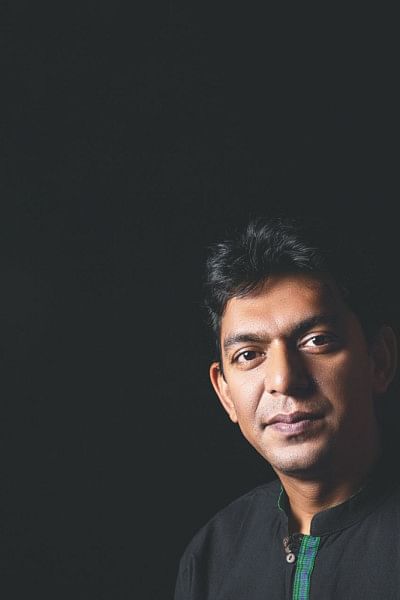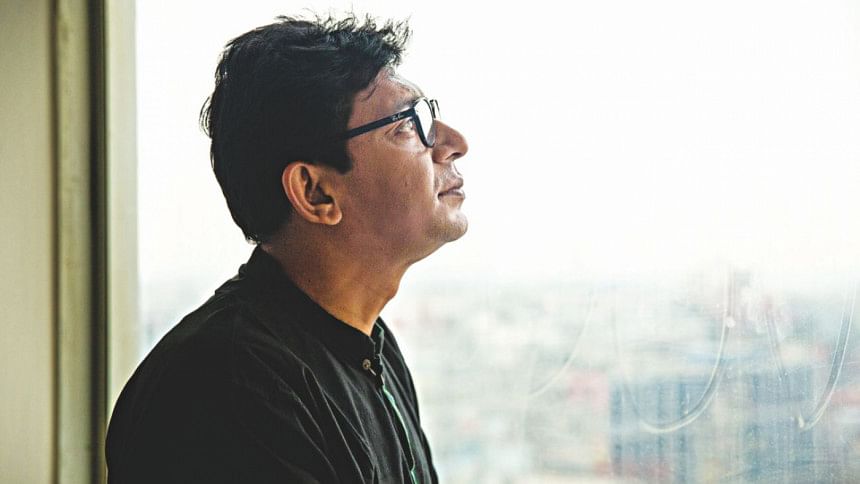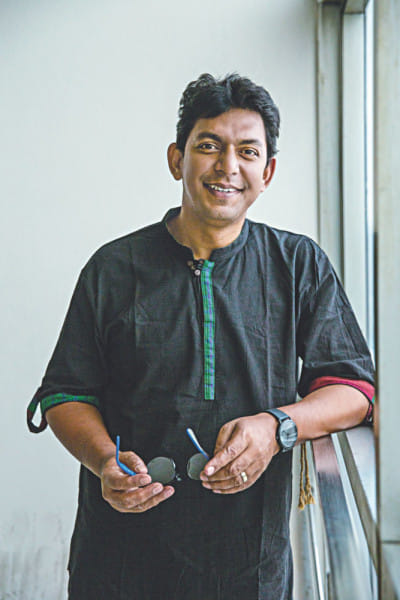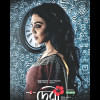Misir Ali Impartially!

Rafi Hossain: We feel really ecstatic, Chanchal, that you have managed to find some time for us from your hectic schedule. We have been trying to get a hold of you for a long time now! Tell us, are you trying to avoid the media for any reason?
Chanchal Chowdhury: I have only been trying to focus on my works, rather than focusing on publicity and self-promotions. These days most of the people somewhat seem to be giving all their efforts in branding themselves. I absolutely oppose this practice. I believe that if we work hard, our efforts will be recognized beyond any need for publicity.
Rafi: It really surprises me that we had to wait for such a long time for your next film after the ground-breaking success of 'Monpura'!
Chanchal: The sole reason for this delay has been the audience and the alteration in their taste. I had to take enough time and think well before I accepted my next offer. After Aynabaji, the audiences' level of expectation from me definitely went higher. So I had to choose wisely to not fail my beloved followers. I take meeting the demands of my fans as a responsibility, and try to keep my end of this responsibility with candor.
Rafi: 'Debi' is a widely famous novel by the great author Humayun Ahmed. I'm sure you must have read the novel before getting the acting proposal. How did you feel when you were approached with the role of 'Misir Ali'? Did you ever wish to play this role when you read the novel?
Chanchal: I think it was my college days, or perhaps the early days of my university life, when I had read the novel for the first time. I was yet to be an actor at that time. It was beyond my imagination that I would become an actor someday, and so wishing to play Misir Ali in a movie was out of question. But I was deeply in love with the character, that I can say unerringly.
Rafi: When did you actually feel the drive to become an actor?
Chanchal: I studied at the Fine Arts faculty in the University of Dhaka. Rahul from the band Joler Gaan was my batch-mate. Barely two years had passed since I moved to Dhaka, when one day, as I was randomly making a sketch, I overheard Rahul talking to a group of some other boys about applying to some theatre group. From them, I came to know the name of Aranyak Nattyadal for the first time. Being interested, I also decided to try my luck. I instantly wrote an application on a page from my sketchbook, attached an old, worn out photo of myself to the application, and submitted it. A year later I was invited by Aranyak, and eventually, my journey as an actor began.
Rafi: When did you receive your first acting offer?
Chanchal: We used to do stage acts in different schools at that time. My first opportunity to act on the stage came in one of those school performances. In Aranyak, my first appearance had actually been as a substitute artist. It was the drama Joy Joyonti by Mamunur Rashid. There was a TV drama titled Shundori made under Mamun bhai's production house. There in that drama, I had made my debut TV appearance. I played the role of a journalist in a couple of sequences. Grash, aired on BTV, was the drama where I played my first significant TV role.

Rafi: Coming back to 'Debi', how was your reaction when you received the offer?
Chanchal: I was aware of the fact that many renowned actors had already portrayed the role of Misir Ali, although only for TV productions. None had acted as Misir Ali on the silver screen. The previous productions, however, had definitely left a certain image in the minds of the audience. Humayun sir's writing also leaves a deep impression of the solitary character. So I was wondering, what if I fail to match the premeditated image? What if I fail to procure the attributes that the audience consider as prerequisites? This thought had me worried throughout the whole time. I took the risk, knowing that it has a possibility of ending in a disaster like the audiences' refusal to accept the 'new' image of Misir Ali. I kept on rechecking the takes after each shot. I was being extremely careful about the output, I was determined that I would even request the director for a retake if a single shot seemed mismatching to me personally. With stirring jitters inside, I began researching the character. How would Misir Ali walk here, how would he put his spectacles on, what would be his perfect attire - these thoughts had me, as well as the whole team, occupied for a significantly long time. One whole day we spent experimenting with different makeup, we obtained every possible means to decide which getup serves perfectly to the camera. At first, I rehearsed with wigs and fake facial hair. But I could never be satisfied with fake props, and so I ultimately decided to grow my beard and bleached my hair white. Hence I could not do any other shooting for the next seven or eight months. The hair and beard that you see in the movie is one hundred percent real. I had to shave off my entire head once the shooting was over, because due to the bleaching, it is not possible to dye my hair black anymore. Actually, the years I accept a film offer, I keep myself mentally prepared for having to put such kind of dedication. I would do whatever is necessary to keep my commitment. For me, quality always comes before quantity. Now-a-days, I witness a strange competition, mostly during the Eid times. Some actors seem like they are in a race, hurrying to add more to their list of works. And even the newspapers begin to ask us this question, 'how many' are we going to deliver. And I have no shame in saying that I have been losing this race for ever, because I do not accept offers if I don't like the scripts. So I act on about eight to ten TV dramas at most every Eid. Some of the artists act in over forty – fifty dramas. I think having to see the same face every day on every channel is extremely annoying.
Rafi: I think even Amitabh, Shah Rukh or Tom Cruise might start to seem annoying if we had to see them every day!
Chanchal: Well, Shah Rukh or Amitabh release one movie in every two or three years. Our media is far smaller than theirs is, and so the comparison, I think, would not be appropriate.
Rafi: There was a massive gap of eight long years in between 'Monpura' and 'Aynabaji'. Although 'Aynabaji' had managed to snatch equally stunning popularity and admiration as 'Monpura' did, how do you think you would feel if it had not?
Chanchal: Once I completely finish acting, I sit down to watch the whole work with the eye and mindset of a normal audience. If my actor self becomes successful in pleasing my audience self, I have nothing more to ask from my total self. A lot of factors affect the mass audience, and most of it remain out of my control. I have no authority over my followers' preferences. But success is something that one can always cherish and celebrate.
Rafi: Do you ever encounter any sort of superiority complex? Like feeling - 'I am THE super hit actor!'?
Chanchal: No, not really. If it had been like that, I do not think I would be able to decline the near 150 movie proposals that I received after Monpura. The amount of money I would have by now if I accepted those offers is also not something to ignore very easily, to be honest. So 'Super Hit' is a term that hardly has any impact on my mind, when I am building up my coherence. I am sure I would have remained the exact same person I have always been, regardless of my movies scoring over-boundaries back to back. My first work was Rupkothar Golpo, then Monpura, Moner Manush, Television and then Aynabaji. Not all my movies were commercially successful, but it were all well discussed, and appreciated by the critique. And that is just enough reward for me. I have never considered myself to be a 'star', for that I leave to my audience to decide. I am only an actor, and my acting skill was all I had to present in front of my audience. Exotic, out of the box role offers do not come through my door every other day, and so I have taught myself to be patient. I personally target to do at least one film every year, but I will never compromise the quality of my work for this target. If we manage to procure at least five to ten good films every year now, our film industry will manage itself to sustain.
Rafi: What do you think the audience genuinely demands?
Chanchal: We, the artists, have played a significant role in shaping the audiences' mentality and demands. From time to time, they have been lead down many wrong directions, and we have to accept the fact that we ARE guilty, to some extent, for causing them the false diversion. Individuals are unique with his or her perception, so we have to show the maturity to deal with the diversity in their feedback. On top of that, we have to partake the responsibility of helping mold the mass perceptions on a standard that is better than ordinary. I have witnessed the heinous practice of imposing our own preferences as 'audience preferences' by many actors and directors over the years. I absolutely despise creating such kind of deceptions. Directors are being forced to follow some particular genre, some certain formats of TV productions and it is being kept on repeat mode, thus all the dramas are starting to seem identical after some episodes. We have to stop force-feeding the audience. The common people have changing demands, and so we have to learn to be compatible with that. This is the very reason why Monpura turned out to be so vogue, the very reason why we have sky-high expectations from Debi. Humayun Ahmed has been the quintessential example of eccentricity throughout his whole life. His stories keep creating stranger illusions as we turn the next page. That, intermingled with the intuitive direction of Anam Biswas, has resulted into the grand outcome of Debi. Jaya Ahsan is an unrivalled actor of both East and West Bengal. Then we have had Khasru, the extremely promising cinematographer, in our team. With such a total, uncompromised effort, I hope that Debi has lived up to the audiences' genuine demands.

Rafi: I am sure Anam has given his best shot. This was the debut production for Jaya, and so we can expect that she gave her top efforts, too.
Chanchal: Reaching the audience with our artifacts is another sector where, I think, we still lack efficiency. We have been stuck with the old, typical marketing strategies for decades now. Now we are judging the standard of a production by its YouTube view counts. Directors who are getting better views on YouTube one year are getting the call from TV channels the next year. But I think this system is opening up the gates to stardom for people who are yet to learn how to handle that. I do not intend to discourage anybody, but TV is not a platform where you slapdash. Makers have to educate themselves properly before venturing in arts and culture. Millions of eyes remain on TV sets every day, their thoughts are majorly influenced by the contents on that square box, and nobody should be allowed to juggle with the shaping of mass perception.
Rafi: Suggest us some ways that you think might make the audience come back to the cinema halls again.
Chanchal: I always try to accustom myself and merge together with my co-artist, director and producer so that we can all be onthe same page when we work. I think this alleviates the total team effort. If actors took teamwork as their primary duty, I think a lot would change in the scenario. If we all promise that we would never put money over merit, it will eventually upgrade the mood of our audience.
Rafi: Most of our audiences are now getting so much used to foreign TV serials that they are almost forgetting we have our own industry, too.
Chanchal: This has been extremely upsetting for me. Be it YouTube or TV channel, we get feedbacks of our works in one way or another. Our hard works are rarely appreciated now-a-days. Still I am trying to hold my sincerity to my passion and profession of acting, hoping that the grounds will change day by day. Large scale alterations don't happen overnight. Arts and culture elements are not something that one can fathom through a shortcut.
Rafi: I suppose TV channel owners also have to accept some parts of the liability.
Chanchal: Absolutely. Many of them have been prioritizing monetary benefit over enhancing artifacts. This is completely wrong, because one cannot measure art on a scale of currency. Once they forget their commitment of upholding the socio-cultural values of a nation, the superstructure inevitably starts to witness large cracks in its base. Now all the channels seem to be of the same kinds. Hide the logo, and you have nothing discrete for the viewers to recognize you from the rest. Another growing disease in the sector is that, a whole new kind of third-party has now spurted out of nowhere. Their only interest remains on capitalizing on the artistic productions in every possible way. This party has to be terminated with strong, immediate actions.
Rafi: We need the investors to be alert on this matter. And we need devoted artistes like you, Chanchal, to hold the flags of our socio-cultural progress. You must never compromise with the quality, yet our request would be that you appear more frequently on the screens from now on! Enlighten us with information on your upcoming projects.
Chanchal: Talks are rotating on the court about a new film, however, nothing has been finalized yet. I would like to request all the sincere and talented artists of the country through this platform that, every artist possesses a solemn power of presenting the mass with something that creates history. I have been fortunate to be able to contribute with works like Monpura and Aynabaji. But this never has indicated any sort of ending for me or anybody else. In fact, our works are far from being over. Once we realize where the problem truly lies, why can't we forget the rest of the world, at least for the time being, and strive to embellish our grounds of working? Good movies have dragged the audience to the cinema halls in the past, and it will continue in the future as well. No excuse shall be placed to hide the lack of integrity of our works.
Rafi: Do you have any special message for the audience regarding 'Debi'?
Chanchal: The whole team has given their best efforts to make Debi stand out as a milestone. The movie came out as a consequence of the dedication of a group of true artistes, this I can guaranty. So please come to the cinema halls with your friends and family, and be a part of one of our most memorable projects. Only then our endeavors will attain validity.

 For all latest news, follow The Daily Star's Google News channel.
For all latest news, follow The Daily Star's Google News channel. 






Comments